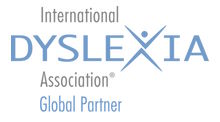Students
When children have difficulty with reading, writing, and/or mathematics or cannot learn at the same pace as their peers, their interest in learning may be jeopardized. Students with Specific Learning Disabilities (SLDs) often have difficulty coping in regular classrooms for a variety of reasons. They may have delayed language development, poor reading and writing skills, or difficulty with mathematics. Students with characteristics of Attention Deficit Hyperactivity Disorder (ADHD) may struggle in the classroom because of their distracting behavior and difficulty with attention. These students are at risk of falling into a cycle of failure when their SLDs and/or ADHD have not been identified and when teachers teach in ways these students cannot learn. The challenge is for teachers and parents to teach in ways that enable these students to learn so they experience a cycle of success.
We serve children with SLDs, of which some have an ADHD diagnosis, in English and in Marathi at our Resource Centre, our Satellite Centres, and at several partner schools in Pune and Pimpri-Chinchwad. Our Resource Teachers (RTs) identify the individual student’s struggles with reading, writing, and mathematics, and teach her/him skills and strategies that utilize her/his strengths. We provide behavioral or medical interventions for children with ADHD. We do not offer specialized services for those on the autism spectrum or with intellectual delay. However, upon request, we can refer families needing such services to resources in the community.

AMF is the first accredited Global Partner in India of the International Dyslexia Association.

